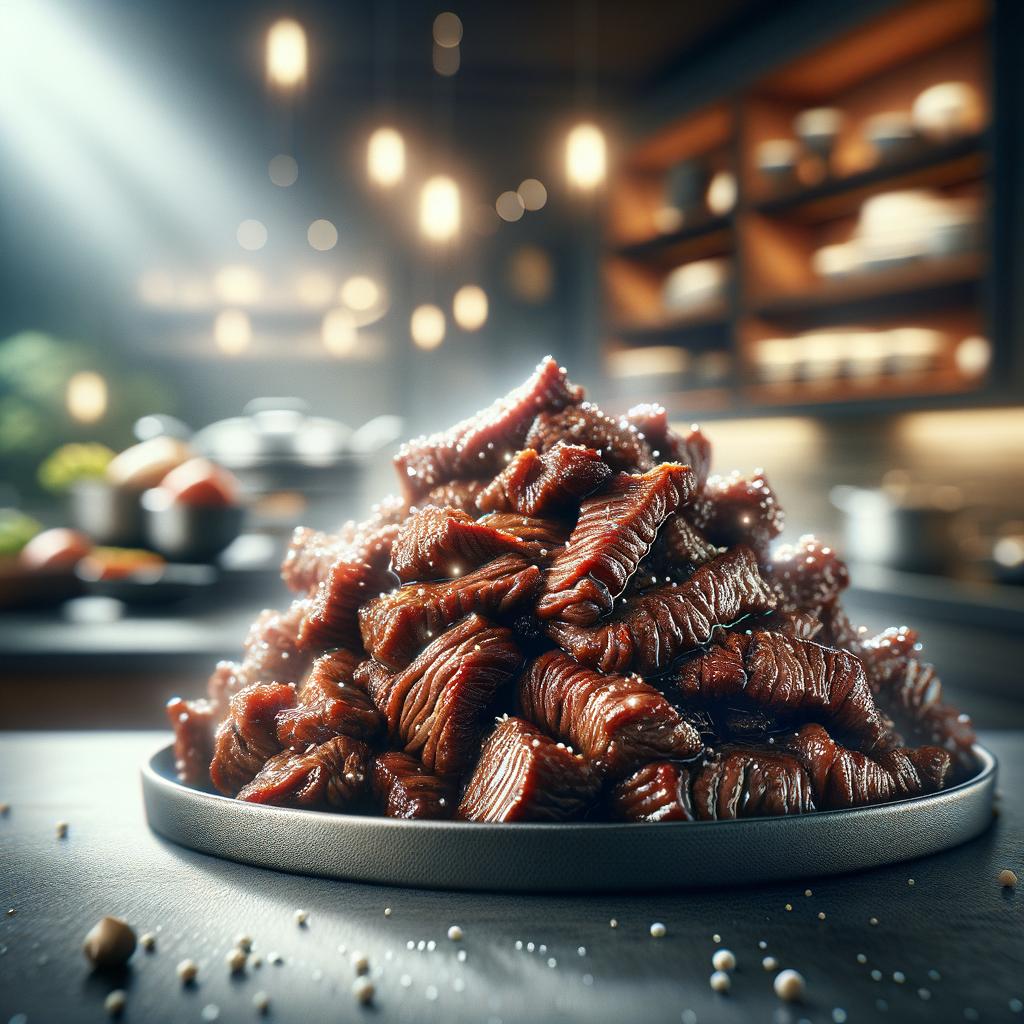Cooked Bulgogi Beef

Description Bulgogi beef is a quintessential ingredient in Korean cuisine, which has been marinated in a tantalizing mixture of soy sauce, sugar, sesame oil, garlic, and sometimes pear or apple puree. It has a tender, almost melt-in-your-mouth texture, which is a result of the thin slicing and marinating process. The beef is usually a deep brown color, with a glossy sheen from the marinade. Its flavor profile is a delightful balance of savory, sweet, and slightly smoky, with an underlying hint of umami that sets it apart from other beef dishes.
Primary Uses Bulgogi beef is a star in many Korean dishes. It's often served in a lettuce wrap with a smear of ssamjang (a spicy paste), a slice of raw garlic, and a piece of fresh chili for a burst of flavors. It's also a key ingredient in bibimbap, a mixed rice dish, and bulgogi stew. Outside of the culinary world, bulgogi has deep cultural significance in Korea, often served at festive occasions and celebrations.
History The history of bulgogi beef is as rich as its flavor. It dates back to the Goguryeo era (37 B.C. to 668 A.D.), where it was initially called 'maekjeok', with 'maek' referring to the Goguryeo kingdom and 'jeok' meaning skewered meat in Korean. Over time, the dish evolved into 'neobiani', a royal court food enjoyed during the Joseon Dynasty. It was only in the late 20th century that the term 'bulgogi' was coined, which literally translates to 'fire meat'. The dish has grown in popularity over the centuries, becoming a beloved staple in Korean households and restaurants worldwide.
Nutritional Information Bulgogi beef is not only delicious but also packed with nutritional benefits. It's a good source of protein, essential for muscle growth and repair. The marinade ingredients, including garlic and sesame oil, provide beneficial compounds like allicin and sesamin, known for their anti-inflammatory and antioxidant properties. However, as with any marinated and grilled meat, it should be consumed in moderation due to the potential risk of consuming high levels of sodium or carcinogens from the grilling process. Compared to other beef dishes, bulgogi's unique marinating process helps tenderize the meat, potentially making it easier to digest.

